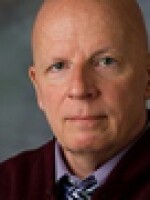In the early part of the 20th century, hundreds of recently arrived Eastern European Jewish families lived on farms in upstate New York. Their descendants are holding a reunion this October in Rensselaer County.
The Jewish refugees knew nothing about farming when they arrived, but were game to try their hand at agriculture. Larry Fader's grandfather Harry had fled Poland around 1918, a tough time to be a Jew in Eastern Europe, where they were not allowed to own land. They lived in constant fear.
"Pogroms were acts of terror and killing that were aimed at Eastern European Jewry around the turn of the 20th Century. The Baron Maurice de Hirsch Fund provided money, grants and loans to these people, stipulating that these immigrants farm the land, which offered them ways of sustaining themselves and was also good for the new American economy," said Fader.
Harry ended up in Nassau, New York, one of several Rensselaer County towns where the philanthropist’s grants were available. The settlers hunkered down, were given agricultural training, and somehow managed to eke out an existence on the farms, embracing their new lives in rural America. "They needed each other in order to survive, to learn how to farm, to help one another financially in terms of farming the land."

Rensselaer County's Hebrew Farmers Association was established the same year.
Nassau historian Kurt Vincent says by the mid-1920s, about 200 Jewish farming families had put down roots in Nassau, East Schodack and Schodack. "Over 400 mortgages were provided at very reasonable rates to a number of families through the 1940's, the last one was in 1944, to allow them to purchase these properties and try their hand at farming. However, southern Rensselaer County is not noted for particularly good farm soil. It's very rocky, a lot of shale. So while they worked and worked and toiled and toiled, in the end, it didn't prove to be a very worthwhile experience."
Most of the newcomers cleared out by the early 1950's, as their children left to follow more urban-oriented careers.
Fader has organized an effort that has managed to identify and locate hundreds of descendants of the refugee farmers. The backdrop for the reunion ironically is the last remaining synagogue founded by early settlers — the Nassau Synagogue, off Route 20, which also serves as a Jewish Community Center.

Fader's Uncle Art Feder was born on one of the farms in the 1930's. "It was quite a life, and I don't regret any of it. We had a couple of horses, we raised chickens, we had cows at one time and sent milk, a man used to pick it up and bring it to Borden Dairy in Albany. Of course we used to go in the woods and bring out logs for lumber. I'd be out in the fields pickin' beans or pickin' cucumbers and all my friends would be ridin' on their bike sup to the falls in Hoags Corners to go swimmin' in a swimmin' hole. We went to Menands market in the summer when we had cucumbers and beans that we sold. It was a tough life."
Although he's 86, Art plans to be at the reunion this fall. Registration invitations have been sent out to 65 families, not including locals. Some 200 people are expected to attend the reunion, which will take place October 29th and 30th.
Related:
New England’s dairy farmers remain the backbone of the region’s agriculture but fight for survival in an age of artisan cheese and kale. The new documentary film, Forgotten Farms, will premier at the Berkshire International Film Festival. Screenings are Saturday, June 4, at 1:45 p.m. at the Triplex in Great Barrington, Mass., and Sunday, June 5, at 11:30 a.m. at The Beacon Cinema in Pittsfield, Mass. For tickets, go to biffma.org.












